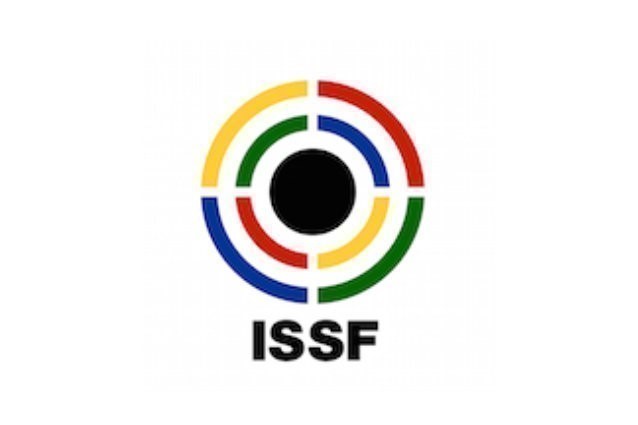ISSF hereby brings to the attention of all our athletes, national federations, coaches, and relevant athlete support personnel the publication of the 2021 Prohibited List of Substances and Methods.
The World Anti-Doping Agency (WADA) published on September 30 2020 the 2021 List of Prohibited Substances and Methods (List); the 2021 Summary of Major Modifications and Explanatory Notes; and the 2021 Monitoring Program.
The 2021 List, which has been redesigned in order to improve navigation and usability for athletes and their support personnel, was approved by WADA’s Executive Committee during its meeting on 14-15 September 2020 and comes into force on 1 January 2021.
The List is one of the International Standards that are mandatory for all Signatories of the World Anti-Doping Code (Code). It designates what substances and methods are prohibited both in- and out-of-competition and which substances are banned in particular sports.
2021 List Redesign
As it relates to the 2021 List’s redesign, the improvements include:
- A table of contents that provides a non-exhaustive list of examples of medical conditions for which substances in the different classes may be prescribed;
- An introduction that defines some terms used in the List;
- Headings in each class indicating which substances or methods are prohibited at all times or in-competition, which classes are specified versus non-specified, and, where applicable, identification of the substances of abuse within a class;
- Well-defined headings for the classes and sub-classes;
- Exceptions and notes within categories that are now more clearly identified; and
- A new index at the end of the document, listing the substances and methods mentioned in the List.
Major Modifications relevant to Shooting Sport Athletes
As it relates to modifications which are outlined by clicking on the previous hyperlink, the ones most relevant to ISSF are outlined below:
Ø Substances of abuse:
- During the two-year review process for the 2021 version of the Code, WADA received considerable stakeholder feedback related to substances of abuse where it was felt that the use of some substances included in the List was often unrelated to sport performance. Accordingly, Article 4.2.3 was added to the Code, and cocaine, diamorphine (heroin), methylenedioxymethamphetamine (MDMA/“ecstasy”) and tetrahydrocannabinol (THC) have been identified as substances of abuse in the 2021 List.
- This means that if an athlete can demonstrate that the use of any of these four substances was
i. out-of-competition and
ii. unrelated to sport performance,
the suspension imposed will now be three months and may be reduced to one month if the athlete completes a drug rehabilitation program.
Ø Beta Blockers:
· The use of all Beta blockers (Section P of the List) remains strictly prohibited both in competition and out of competition in Shooting Sport
· Section P1 now also expressly lists Nebivolol as an example of a betablocker (this adds to the already non exhaustive list of beta blockers listed in section P which now reads
Beta-blocker are prohibited In Competition and Out of Competition in shooting-sport.
These include, but are not limited to:
Acebutolol Alprenolol Atenolol Betaxolol Bisoprolol Bunolol Carteolol Carvedilol Celiprolol Esmolol
Labetalol Metipranolol Metoprolol Nadolol Nebivolol
Oxprenolol Pindolol Propranolol Sotalol Timolol
Criteria for list inclusion:
For a substance or method to be added to the List, it must be determined that it meets at least two of the following three criteria:
- It has the potential to enhance or enhances sport performance
- It represents an actual or potential health risk to the athletes
- It violates the spirit of sport
Athletes are still responsible for everything they ingest
The List is released three months ahead of it taking effect so that athletes and their entourage can acquaint themselves with any modifications.
Ultimately, athletes are responsible for prohibited substances found in their body and prohibited methods found to have been used. Athlete entourage are also liable for Anti-Doping Rule Violations if determined to be complicit.
Consequently, if there is any doubt as to the status of a substance or method, it is important that the athlete contact his or her respective Anti-Doping Organization (International Federation or National Anti-Doping Organization) for advice.
Reminder to apply for Therapeutic Use Exemptions
It should be noted that for all international level athletes (meaning all athlete who hold an ISSF ID and who compete or intend to compete at international events) who have a legitimate medical reason for using a prohibited substance or method that is on the List, they may be accommodated if they meet the criteria outlined in the International Standard for Therapeutic Use Exemptions (ISTUE).
The TUE Program is a rigorous and necessary part of elite sport which has overwhelming acceptance from athletes, physicians and anti-doping stakeholders. An ISSF TUE application form can be downloaded off the anti-doping section of the ISSF website, where you can find a lot of other particularly useful information on anti-doping.
Upcoming WADA Webinar
In order to assist stakeholders in their understanding and implementation of the 2021 List, WADA will host a webinar on 29 October 2020 at 7:00 AM EDT entitled: 2021 Prohibited List and beyond. Participants will be taken through the major modifications; as well as, a few key items under review for 2022 by WADA’s List Expert Group. Stakeholders wishing to register for the webinar are invited to do so here.
Questions?
If you have any questions on this or any other anti-doping related issue please direct them to ISSF headquarters or to doris@issf-sports.org.

